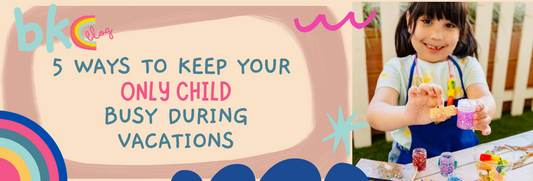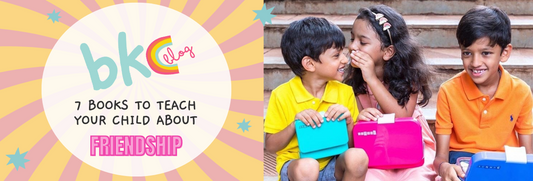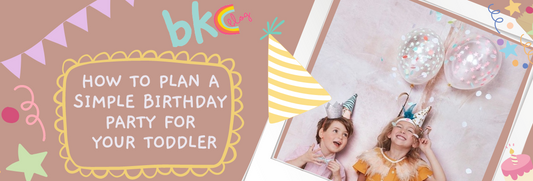There are certain habits that formed at a formative age can have a long-lasting impact on a young person’s life. Journaling is one of them. Here are some reasons why you should introduce your child to journaling, along with some ways to guide them on their journey.

Growing up, did you have one of those cute diaries with an attached key and a pen? And did you enjoy curling up in a little corner of your room to pour your pre-teen heart out onto those pages? Perhaps you still keep a journal that you dip into every now and then. Well, it may be time to introduce your child to the joy of journaling.
As a practice, journaling is related to the traditional diary-writing that many of us were accustomed to in our younger years. And though we may look back at our childhood diaries with a level of cringe, the benefits of the practice are undeniable.
To help you get your child started we’ve put down a list of the hows and whys of journaling.
Journaling VS Diary writing
Why do we recommend journaling over diary-writing? And, what’s the difference? Both are not unrelated; in fact, there is a great overlap between the two.
Diary keeping refers to the act of keeping a daily log of things we did. A description of events that may have happened over the course of the day or a period of time. On the other hand, journaling is a deeper dive into your feelings and emotions.

Interestingly enough, journals can also be theme based. For example, your child could keep a travel journal. Or, they could have a journal that is a collection of poems that speak to them, or their thoughts and feelings on a certain subject.
And what’s the right age for your child to start journaling? It could be as young as six to eight years. Basically, if your child is able to sit in a place long enough to express themselves in words, sentences, drawings, or doodles, then they’re good to go. It’s best to catch them in their pre-teen years when children are developing a sense of individuality but are still receptive to suggestions about their private lives.
Benefits of Journaling for Children
1. Improves Reading, Writing & Comprehension Skills
When was the last time you had a chance to write something long form on a piece of paper? It’s likely been a while.
In an age where writing by hand is becoming something of a novelty, your child would greatly benefit from a habit that encourages them to do exactly that. Studies show that writing by hand improves memory and retention. Moreover, most schoolwork is still heavily reliant on writing by hand, so why not help your child enhance that skill?

Typing on laptops, even for something as simple as taking down notes leads to easy distraction. The single-minded focus needed for writing on paper also improves the ability to process and structure thoughts. And with focus comes better attention to detail.
2. Enhances Communication Skills
The act of journaling, particularly when it is writing based, requires one to sit with one’s thoughts and find a way to express them in comprehensible words on a page. This requires a deep level of self-reflection that with practice translates into a sense of self-awareness. And with reflection comes the ability to understand different perspectives, which builds empathy.
One of the most difficult aspects of being a child in a world of adults is feeling like no one can understand you because you don’t have the vocabulary for it. Children struggle with expressing their emotional state, which is why younger children with a limited grasp of words often resort to tantrums when they’re upset. They simply don’t know how else to express their inner turmoil. So for those who aren’t good at expressing themselves verbally, journals are a lifeline.
Hence, cultivating a practice that gives them a private space for vulnerability and self-exploration teaches them how to express “big” feelings. As your child grows into an adult this ability to communicate difficult feelings into words will help them grow into empathetic individuals who will be better placed to build healthy relationships.

The Jumbo Journal About Me is a great tool for a child to begin building their journaling habit
3. Builds Creativity & Discipline
Not only does journaling have great academic benefits, as touched upon above, but it also serves as a great creative outlet. The key is to allow your child to decide how they want to express themselves. Let their interests and inclinations dictate the process.
They may choose to draw or doodle. If they ask for specific stationary for their journaling process, such as stickers, markers, or crayons, do try to indulge them if you can. They may want to cut out pictures from magazines, or save movie or plane tickets, and turn their journal into something of a scrapbook. Whichever way they decide to go will be a form of their unique creative expression.
And creativity can go nowhere without a sense of discipline to keep you coming back to it. Especially when it comes to something like writing, which is inherently challenging, a child is more likely to want to engage with it if it’s done in a way that suits their personal style.
4. Aids Emotional Development
We spoke about how journaling can help a child learn how to communicate and build healthy relationships. Well, there are also mental health benefits that can help your child build a better understanding of their own needs.
You Are the Magic You Seek is ideal for such self-exploration
Journaling is often recommended as a therapeutic technique and it’s for a reason. It’s been found to help adults and children alike manage anxiety and stress, as well as understand triggers for the same. Expressing oneself in words has a way of helping you gain perspective and prioritise what feelings to focus on and what to let go of.
Children growing up in the digital world face peer pressure at a level and scale that we never had to deal with. Given this, their journaling practice could become a space free of judgement and the need to impress or perform for the world.
How to Help Your Child Begin Journaling
The #1 Rule for Parents
We have to take a moment here and put all parents on the spot; and for good reason! One crucial tip for parents is to respect your child’s privacy. If your child wants their journal to be private, keep it that way. Fight the urge to read what they have written.
As their primary caregiver and well-wisher, you may think that you have the right to know what they’re feeling about certain things, but reading their journal without their consent is not the way to do it.

If you’re concerned that your child is struggling with something specific, create a safe space for a conversation. Violating their private space will only damage the bonds of trust you share.
Types of Journals
Based on your child’s interests, there are many ways to go about this. We suggest explaining all the options to your child and letting them choose.
-
For the outdoorsy ones, we suggest a nature journal, especially if you have a backyard garden or a park nearby. We recommend getting pocket-friendly journals that your child can carry around easily. They may want to collect leaves or draw what they see while at the park.
A great way to start them off would be to plan an outing to the zoo and have them draw and decorate what they see. -
If you’re planning a trip soon then, why not get your child to curate a travel journal? Children who enjoy learning about new places may find it particularly enjoyable. Help them collect museum pamphlets, entrance tickets, and guides to cut out from and use for scrapbooking. (These gorgeous gel pens would be perfect for the purpose!)
Let them know that they’ll be creating something that they will cherish years later. -
Is your child a contemplative day-dreamer? For the sensitive, shy, unsure child, we would recommend a feelings journal. Something like You Are the Magic You Seek - A Journal for Looking Within would help them unwrap their emotions, learn how to practise self-compassion, and become more confident individuals.
-
Do you have a restless child? Does your child find it difficult to focus on one thing for too long? Perhaps a journal that is based around daily prompts would be the perfect fit for them. The Gratitude Journal is designed to direct your child’s attention to specific questions and guide their self-exploration.
-
For the creative ones, we suggest a colour-in personal diary that is structured to give them plenty of space for exploration and expression. (These pretty pastel colour pencils would complement the diary beautifully.)
-
If your child best expresses themselves in words then a simple notebook may be what they need to pour their heart out and tell their life story.
All habits take time. In fact, it is said that it takes 21 days to three months to pick up a new habit. So be patient with your child and encourage them to journal consistently. Perhaps a certain time of day may work best for them; eg. when they return from school or before they go to bed.
If your child takes to journaling, they may have found a coping mechanism that will pay rich dividends for the rest of their life. Who knows, it may even end up guiding their life path.





